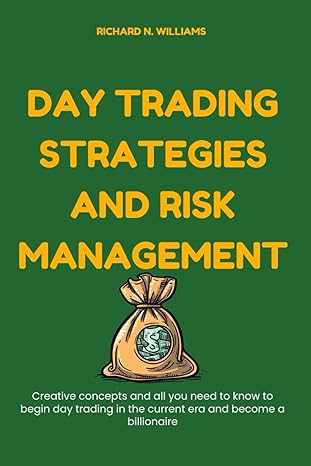Question
A collection of financial assets and securities is referred to as a portfolio. Most individuals and institutions invest in a portfolio, making portfolio risk analysis
A collection of financial assets and securities is referred to as a portfolio. Most individuals and institutions invest in a portfolio, making portfolio risk analysis an integral part of the field of finance. Just like stand-alone assets and securities, portfolios are also exposed to risk. Portfolio risk refers to the possibility that an investment portfolio will not generate the investors expected rate of return.
Analyzing portfolio risk and return involves the understanding of expected returns from a portfolio.
Consider the following case:
Andre is an amateur investor who holds a small portfolio consisting of only four stocks. The stock holdings in his portfolio are shown in the following table:
| Stock | Percentage of Portfolio | Expected Return | Standard Deviation |
|---|---|---|---|
| Artemis Inc. | 20% | 6.00% | 29.00% |
| Babish & Co. | 30% | 14.00% | 33.00% |
| Cornell Industries | 35% | 11.00% | 36.00% |
| Danforth Motors | 15% | 3.00% | 38.00% |
What is the expected return on Andres stock portfolio?
7.28%
9.70%
13.10%
14.55%
Suppose each stock in Andres portfolio has a correlation coefficient of 0.4 ( = 0.4) with each of the other stocks. If the weighted average of the risk of the individual securities (as measured by their standard deviations) included in the partially diversified four-stock portfolio is 34%, the portfolios standard deviation (pp) most likely is 34%.
Step by Step Solution
There are 3 Steps involved in it
Step: 1

Get Instant Access to Expert-Tailored Solutions
See step-by-step solutions with expert insights and AI powered tools for academic success
Step: 2

Step: 3

Ace Your Homework with AI
Get the answers you need in no time with our AI-driven, step-by-step assistance
Get Started


